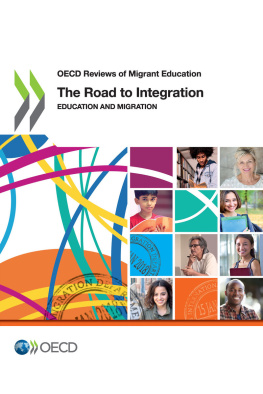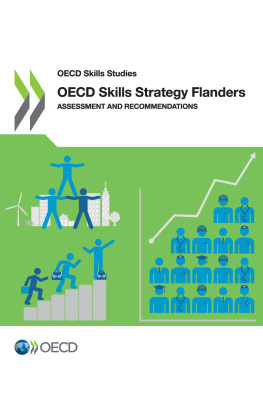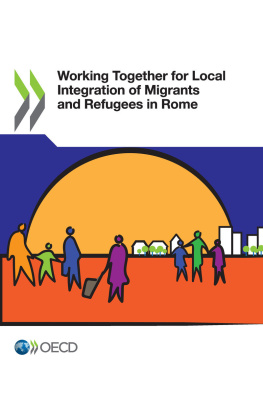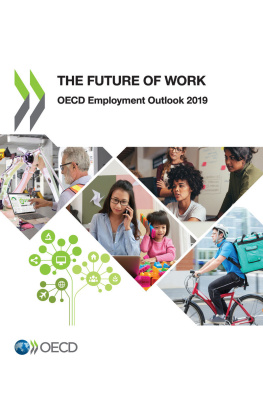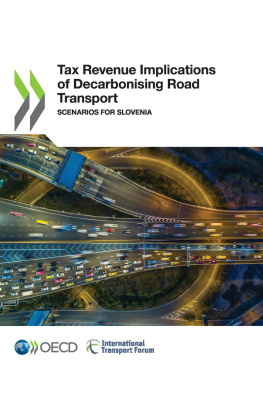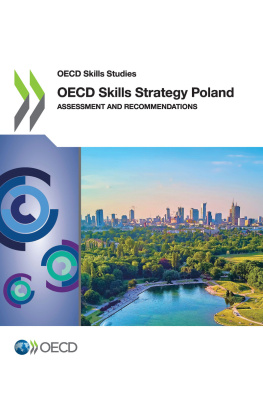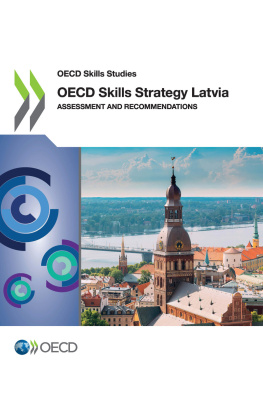OECD - The Road to Integration
Here you can read online OECD - The Road to Integration full text of the book (entire story) in english for free. Download pdf and epub, get meaning, cover and reviews about this ebook. year: 2019, publisher: OECD Publishing, genre: Politics. Description of the work, (preface) as well as reviews are available. Best literature library LitArk.com created for fans of good reading and offers a wide selection of genres:
Romance novel
Science fiction
Adventure
Detective
Science
History
Home and family
Prose
Art
Politics
Computer
Non-fiction
Religion
Business
Children
Humor
Choose a favorite category and find really read worthwhile books. Enjoy immersion in the world of imagination, feel the emotions of the characters or learn something new for yourself, make an fascinating discovery.
The Road to Integration: summary, description and annotation
We offer to read an annotation, description, summary or preface (depends on what the author of the book "The Road to Integration" wrote himself). If you haven't found the necessary information about the book — write in the comments, we will try to find it.
OECD: author's other books
Who wrote The Road to Integration? Find out the surname, the name of the author of the book and a list of all author's works by series.
The Road to Integration — read online for free the complete book (whole text) full work
Below is the text of the book, divided by pages. System saving the place of the last page read, allows you to conveniently read the book "The Road to Integration" online for free, without having to search again every time where you left off. Put a bookmark, and you can go to the page where you finished reading at any time.
Font size:
Interval:
Bookmark:
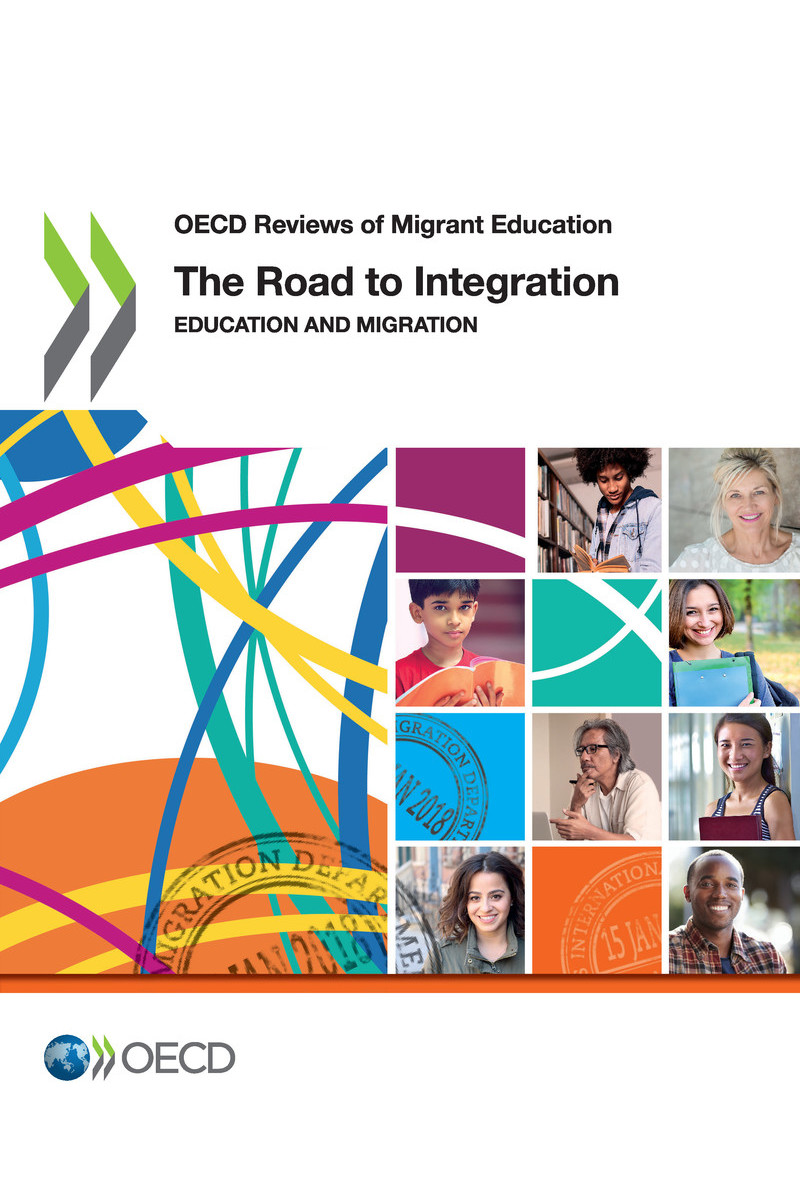
OECD (2019), The Road to Integration: Education and Migration , OECD Reviews of Migrant Education, OECD Publishing, Paris, https://doi.org/10.1787/d8ceec5d-en .
Education and training systems can play a key role in helping countries unlock the benefits of migration. This involves supporting immigrants to develop and use their skills, participate in the labour markets of host countries, contribute to welfare arrangements, and feel a sense of belonging in their host communities. However, the road to integration is not always well-paved and easy to navigate. Many countries face challenges when it comes to the integration of immigrants, also because there is limited knowledge about what policies and strategies are effective for successful integration.
Over the past two years, the OECD Strength through Diversity: The Integration of Immigrants and Refugees in Education and Training Systems project has developed a rich evidence-base to help countries identify the needs of new arrivals, while putting in place or scaling up integration policies to support immigrants and the communities in which they settle. This report provides a synthesis of the projects findings and identifies eight policy pillars that can help sustain and support the effectiveness of policy design and implementation.
Importantly, the Road to Integration is not only about identifying how the skills of immigrants can be developed and effectively used. It is also about promoting their overall social and emotional well-being, recognising differences in migration-related experiences and ensuring that all people - both native populations and migrant communities - have the cognitive and affective skills required for openness to diversity and change.
The OECD, with its Strength through Diversity project, stands ready to support countries in developing and implementing policies for more inclusive education and training systems. This not only can benefit immigrants, but support all individuals to engage constructively with others in increasingly diverse and complex societies.
The development of this report was guided by Andreas Schleicher and Yuri Belfali and was overseen by the Education Policy Committee. Paulo Santiago provided support in the last stages to help finalise the report. The report was led by Francesca Borgonovi and drafted by Francesca Borgonovi, Lucie Cerna, Alessandro Ferrara and Caitlyn Guthrie. Emma Linsenmayer edited the report and Rachel Linden co-ordinated its production. Diana Tramontano, Matthew Gill, Hanna Andersson and Nikita Quarshie provided administrative and editorial support. The report was enriched by the thoughtful contributions provided by the many individuals who participated in Phase I of the Strength through Diversity project.

Andreas Schleicher
Director for Education and Skills
Special Advisor on Education Policy to the Secretary-General
Migration has been at the centre of policy debate across the OECD in recent years. Policy responses aimed at supporting and facilitating the integration of immigrants have been polarising in many countries. Policy makers, civil society organisations, schools and citizens in OECD countries all contribute to support newcomers.
Migration flows can create some challenges for host communities, but they also represent an opportunity for countries that face an ageing native-born populations to overcome the associated threat of labour and skills shortages. Education and training systems can play a key role in ensuring that countries are able to effectively tackle the challenges associated with migration and unlock migrations benefits. Education and training systems have a unique role to play if new arrivals are to be able to develop and use their skills, participate in the labour markets of host countries, contribute to welfare arrangements, and feel a sense of belonging in their communities.
However, a lack of coordination between different actors and a lack of knowledge on what strategies work can reduce the effectiveness, reach and suitability of policies aimed at supporting immigrant and refugee students. Education and training systems not only enable immigrants to acquire skills necessary for entering the labour market, they also help immigrants understand the culture and traditions of the country of destination and can ensure that native populations have the cognitive and affective skills that are necessary to be open to diversity and change.
The Road to Integration. Education and Migration identifies eight policy pillars that can sustain and support the effectiveness of policy conception, design, and implementation in education.
Individuals with an immigrant background are a highly heterogeneous group. Characterising individuals by their immigration background can help target service delivery and, as a result, support integration processes. However, grouping individuals based on their immigration background can create barriers within communities and hide other important dimensions that are more critical for their personal development, overall well-being and their long-term integration. Individuals with an immigrant background should receive support to help them achieve their potential, but care should be taken if and when targeted initiatives are implemented to avoid stigmatising individuals because of their background.
Font size:
Interval:
Bookmark:
Similar books «The Road to Integration»
Look at similar books to The Road to Integration. We have selected literature similar in name and meaning in the hope of providing readers with more options to find new, interesting, not yet read works.
Discussion, reviews of the book The Road to Integration and just readers' own opinions. Leave your comments, write what you think about the work, its meaning or the main characters. Specify what exactly you liked and what you didn't like, and why you think so.

